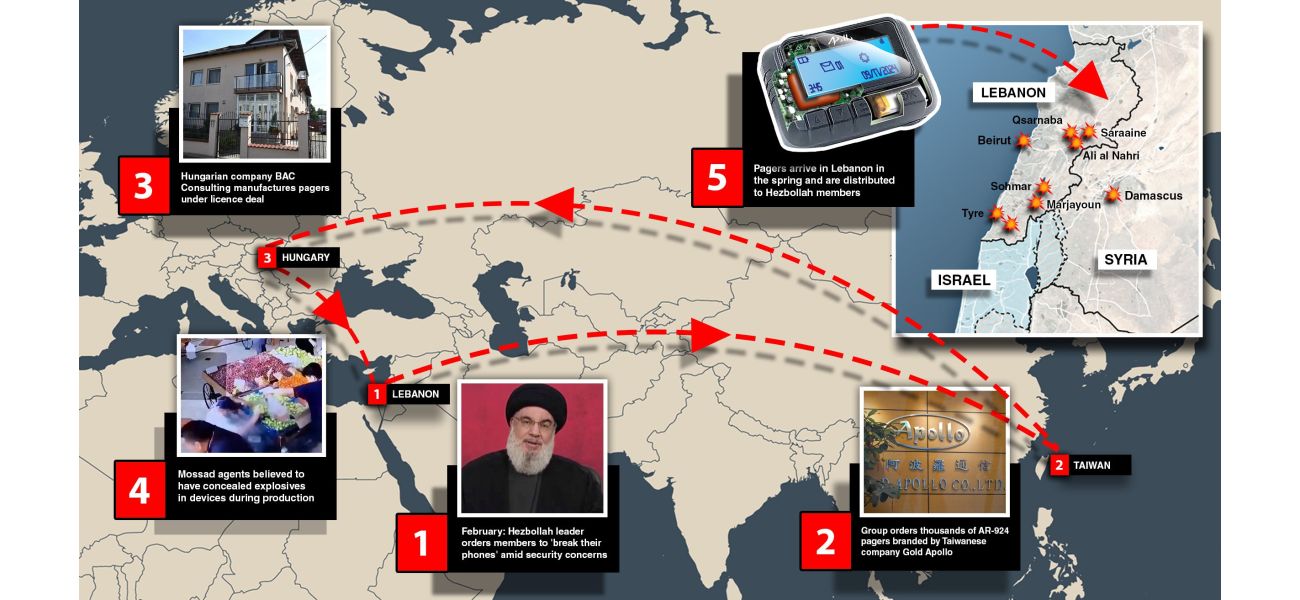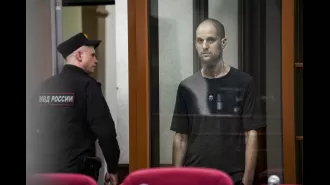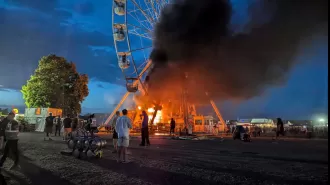The map displays locations of pager and walkie talkie explosions in Lebanon.
37 people died and 3,000 were injured in the incident.
September 19th 2024.

Have you ever wondered what it would look like if thousands of pagers and walkie-talkies exploded simultaneously in two different countries? Well, that's exactly what happened recently in Lebanon and Syria, and the aftermath was devastating.
It all started when Israel, in an attempt to harm their enemy Hezbollah, sent 5,000 pagers to the militant group with explosives and metal balls hidden inside. Hezbollah's leader, Hassan Nasrallah, had been warning his followers for years to stop using mobile phones, fearing that Israel was using them to locate and assassinate their top commandos.
Nasrallah even went as far as to urge his followers to "bury it, put it in an iron box and lock it" when referring to mobile phones in a speech back in February. So when the pagers beeped to announce a message on Tuesday afternoon, no one suspected the danger that awaited them.
The explosions occurred at till points and market stalls, killing at least 12 people and injuring 2,800 more. The victims included two children and four healthcare workers, many of whom lost limbs or needed amputations. The explosions were so powerful that they could be heard in eight different cities and towns in Lebanon, as well as in the Syrian capital of Damascus.
Just 24 hours later, more explosions occurred, this time from walkie-talkies that were believed to be in the possession of Hezbollah operatives. These blasts killed at least 25 people and injured over 600 more. The explosions were heard in various locations in Lebanon and even in Damascus.
Nasrallah wasted no time in responding to the attacks, warning Israel that "the resistance in Lebanon will not stop" in a speech broadcasted on TVs and radios throughout the country. However, his words were met with the sounds of Israeli jets flying overhead, creating sonic booms to intimidate their enemy.
With tensions rising and the risk of escalation looming, the streets of Lebanon were filled with fear and uncertainty. The army was forced to carry out controlled explosions on suspicious devices, and locals were hesitant to speak to journalists out of fear of further blasts.
As Israel moved troops to their northern border with Lebanon and Hezbollah threatened "just punishment," the conflict in Gaza was inching closer to becoming a full-blown regional war. The hope for peace was quickly fading, especially after the recent exchange of firepower between Iran and Israel when drones and missiles were launched at each other.
In the midst of all this chaos, UK Foreign Secretary David Lammy urged British citizens to leave Lebanon while they still had the chance. He warned that tensions were high and the situation could deteriorate rapidly, and he didn't want British nationals to be caught in the crossfire.
The war between Israel and Hezbollah continues to escalate, with both sides promising further military action. Israel's Defense Minister Yoav Gallant declared that they were entering a "new phase" in the war, with the goal of ensuring the safety of their northern communities.
Nasrallah, on the other hand, stated that no military action or all-out war could bring peace to the border. As the risk of escalation grows, it's clear that the people of Lebanon and Syria are caught in the middle of a dangerous and volatile situation. Let's hope for a peaceful resolution before it's too late.
It all started when Israel, in an attempt to harm their enemy Hezbollah, sent 5,000 pagers to the militant group with explosives and metal balls hidden inside. Hezbollah's leader, Hassan Nasrallah, had been warning his followers for years to stop using mobile phones, fearing that Israel was using them to locate and assassinate their top commandos.
Nasrallah even went as far as to urge his followers to "bury it, put it in an iron box and lock it" when referring to mobile phones in a speech back in February. So when the pagers beeped to announce a message on Tuesday afternoon, no one suspected the danger that awaited them.
The explosions occurred at till points and market stalls, killing at least 12 people and injuring 2,800 more. The victims included two children and four healthcare workers, many of whom lost limbs or needed amputations. The explosions were so powerful that they could be heard in eight different cities and towns in Lebanon, as well as in the Syrian capital of Damascus.
Just 24 hours later, more explosions occurred, this time from walkie-talkies that were believed to be in the possession of Hezbollah operatives. These blasts killed at least 25 people and injured over 600 more. The explosions were heard in various locations in Lebanon and even in Damascus.
Nasrallah wasted no time in responding to the attacks, warning Israel that "the resistance in Lebanon will not stop" in a speech broadcasted on TVs and radios throughout the country. However, his words were met with the sounds of Israeli jets flying overhead, creating sonic booms to intimidate their enemy.
With tensions rising and the risk of escalation looming, the streets of Lebanon were filled with fear and uncertainty. The army was forced to carry out controlled explosions on suspicious devices, and locals were hesitant to speak to journalists out of fear of further blasts.
As Israel moved troops to their northern border with Lebanon and Hezbollah threatened "just punishment," the conflict in Gaza was inching closer to becoming a full-blown regional war. The hope for peace was quickly fading, especially after the recent exchange of firepower between Iran and Israel when drones and missiles were launched at each other.
In the midst of all this chaos, UK Foreign Secretary David Lammy urged British citizens to leave Lebanon while they still had the chance. He warned that tensions were high and the situation could deteriorate rapidly, and he didn't want British nationals to be caught in the crossfire.
The war between Israel and Hezbollah continues to escalate, with both sides promising further military action. Israel's Defense Minister Yoav Gallant declared that they were entering a "new phase" in the war, with the goal of ensuring the safety of their northern communities.
Nasrallah, on the other hand, stated that no military action or all-out war could bring peace to the border. As the risk of escalation grows, it's clear that the people of Lebanon and Syria are caught in the middle of a dangerous and volatile situation. Let's hope for a peaceful resolution before it's too late.
[This article has been trending online recently and has been generated with AI. Your feed is customized.]
[Generative AI is experimental.]
0
0
Submit Comment





